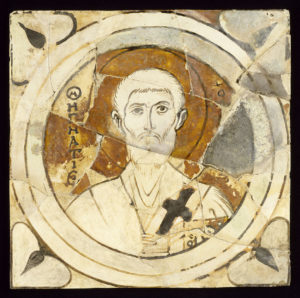Editor’s Note:
Every week there seems to be a new headline on social media about a Christian pastor, author, blogger, musician, worship leader, or YouTube celebrity de-converting from Christianity or re-inventing historic Christian doctrines. The common thread in many of these stories is Progressive Christianity. But what is progressive Christianity? Where did it come from? Why is it growing in popularity? And most importantly, is Progressive Christianity consistent with the Gospel and Scripture? These are just a few of the questions that our special guest writer, Alisa Childers, will be addressing in this series of articles on Progressive Christianity.
Alisa has a powerful story of walking through significant doubts on the way to a stronger faith and she cares deeply about preparing students with the truth, so they are not taken in by the subtle lies packaged within Progressive Christianity. A compelling speaker and author, Alisa teaches on this vital topic to our Impact 360 students both during the summer at Propel and Immersion, but also during our 9-month Christian Gap Year, Impact 360 Fellows. We are committed to cultivating leaders who follow Jesus in the next generation and this is an undercurrent that needs to be addressed. I’ve seen Alisa’s powerful message firsthand and am so glad that we can learn together in this important series.
Jonathan Morrow, Director of Cultural Engagement and Student Discipleship, Impact 360 Institute
Part 1- How We Got Here: A History of Progressive Christianity
A few hundred years after Jesus’ resurrection, a man named Augustine found himself sucked into a cult called the Manichaeans, who believed in Jesus, used Scripture to support their doctrines, and claimed their founder was the “Spirit of truth” Jesus promised would come after He ascended into heaven. Although Augustine was raised by a devout Christian mother, he became dazzled by the new and exciting promises that put a fresh spin on the Christianity he grew up with. It probably didn’t hurt that their beliefs permitted him to sleep with his girlfriend while pursuing his theological studies and perfecting his spiritual mind. As a philosopher, perpetual deep thinker, (and smartest guy in the room), Augustine had many questions that left his local Manichaean leaders scratching their heads.
They promised that if he could just meet a guy named Faustus, all his questions would be answered. Faustus was famous for being the most knowledgeable, acute, and brilliant defender of Manichaean beliefs. When Augustine was finally able to meet him, he found him to be the brilliant orator everyone said he was. He observed Faustus’ charm and charisma. Outside of those personality traits, however, Augustine found little to be impressed by. Faustus was not able to answer his questions, which caused Augustine to doubt his newfound belief system and eventually led him to become a true Christian.
The Manichaeans believed that the teachings of Jesus were incomplete and that they had revelations that would usher in true religion for everyone. In this way, they believed religion could progress beyond what was revealed in Scripture. In order to defend these ideas, Faustus wrote against the reliability of the Bible. He would twist, re-interpret, or omit the parts of Scripture that didn’t line up with Manichaean thought. After Augustine’s conversion to Christianity, he wrote a fairly comprehensive response to Faustus’ attack on the authorship of the gospels. He wrote: “You ought to say plainly that you do not believe the gospel of Christ. For to believe what you please, and not to believe what you please, is to believe yourselves and not the gospel.”[I]
“You ought to say plainly that you do not believe the gospel of Christ. For to believe what you please, and not to believe what you please, is to believe yourselves and not the gospel”
– St. Augustine

Saint Augustine- Public Domain
Augustine put his finger on a timeless truth. Christianity is not progressive…and those who try to mold it into their own preconceived ideas about who God should be, and what the gospel is should not try and twist Scripture to make their points. And they certainly shouldn’t call it “Christian.” But that is exactly what was happening in Augustine’s time, and it is what is happening today.
There is a growing movement in the church that seeks to re-interpret the Bible, re-assess historic doctrines, and re-define core tenets of the faith. All the while, this movement identifies itself as “Christian,” claims to follow Jesus, and boasts a high view of Scripture. But as we’ll see in this series, they are leading many unsuspecting Christians astray, and confusing the body of Christ about what the Bible is, what Jesus accomplished on the cross, and what the good news of the gospel proclaims.
But we shouldn’t be surprised by any of this. From as early as the New Testament was being written, heresies and false doctrines began finding their way into the church. After all, Jesus was the one who told us this would happen. “Watch out for false prophets. They come to you in sheep’s clothing, but inwardly they are ferocious wolves,” Jesus warned. Jesus not only predicted that Christians would be tempted by these false doctrines but pointed out that these teachings would be peddled by people who claim to be Christians. They would look like sheep, walk like sheep, and talk like sheep. But they would not be sheep—they would be predators looking to feast on the sheep.
Emergent Christianity
Back in the early 2000s, some Christian leaders got together to attempt to adapt Christianity to the post-modern mindset that was beginning to pervade culture. They were re-examining the methods the church had been using to reach the world and questioning some of the more legalistic, hypocritical, and downright cheesy elements of modern evangelicalism. But as the movement began to embrace mysticism and emphasize spirituality over religion, apologists and theologians expressed concern over the lack of a concrete belief statement among those involved. In 2006, Emergent leader Tony Jones published an article written by theologian LeRon Shults on emergentvillage.com (now a home and lifestyle magazine), about why there was no official statement of faith. Shults wrote:
A “statement of faith” tends to stop conversation. . . . Too often they create an environment in which real conversation is avoided out of fear that critical reflection on one or more of the sacred propositions will lead to excommunication from the community.[ii]
As the Emergents distanced themselves from a Christianity defined by beliefs and creeds, this different version of faith gained popularity among those disillusioned and disenfranchised by evangelicalism. This birthed “A New Kind of Christianity,” which titled Brian McLaren’s 2010 book. In it, he argues that the Christian notion of a good creation being marred by original sin, redemption by blood atonement, and the restoration of all things in heaven, to be pagan ideas borrowed from Greco-Roman philosophy.
McLaren claims that the true gospel can be known by reading the Jesus story through a Jewish lens. According to McLaren, this means it’s not really about who is “in or out,” or who goes to heaven or hell when they die. He describes Jesus as a “liberator King” who came to offer a kingdom that has “room for many religious traditions within it.”[iii] This type of kingdom champions causes like health care reform, green energy, climate change, and a “regenerative economy.”[iv]
With its denials of original sin and the blood atonement of Jesus, and emphasis on social justice, this new kind of Christianity was largely opposed by Evangelical church leaders. To this day, many think the Emergent movement just sort of fizzled out. However, in a 2012 blog post, Brian McLaren wrote that although they don’t still call it “Emergent,” it is actually stronger than ever. While it’s true the movement was driven underground, the conversation continued, the movement grew in boldness and in numbers, and essentially re-emerged as “progressive Christianity.”
The difference between Emergent Christianity and Progressive Christianity is location. While the Emergents were on the fringes of Christian culture, the progressives now seem to be driving it. With progressive Christian leaders penning best-selling books, garnering millions of followers on social media platforms, and producing podcasts that are regularly found in the top 10 of iTunes religion and spirituality category, their influence is incalculable.

St. Ignatius – Public Domain
But a careful eye to church history will demonstrate that every generation of Christians have had false doctrines, aberrant movements, and wolves in sheep’s clothing to deal with. Around the turn of the first century, church father Ignatius was writing against the heretics of his day, the gnostics. His words carry a familiar ring:
“For those [that are given to this] mix up Jesus Christ with their own poison, speaking things which are unworthy of credit, like those who administer a deadly drug in sweet wine, which he who is ignorant of does greedily take, with a fatal pleasure leading to his own death… For they speak of Christ, not that they may preach Christ, but that they may reject Christ; and they speak of the law, not that they may establish the law, but that they may proclaim things contrary to it. For they alienate Christ from the Father, and the law from Christ. They also calumniate His being born of the Virgin; they are ashamed of His cross; they deny His passion; and they do not believe His resurrection.”[v]
These words could be written about the progressive movement today. As we’ll see in the next post, progressive Christians tend to pit Jesus against the God of the Old Testament, declare the atonement to be “cosmic child abuse,” and emphasize the resurrection as illuminating a helpful metaphor over being a historical fact. By using many of the same words, and maintaining the title “Christian,” they mix up Jesus Christ with their own poison.
But like Augustine confronting Faustus and Ignatius opposing the gnostics, we can be encouraged to know that the historic gospel of Jesus Christ is still true, despite the many attacks against it. It’s our turn to speak truth in the lies, and we have the faithful witness of the historic church rooted in the reality of the resurrection and inspired Scripture to give us the courage to do just that.
It’s our turn to speak truth in the lies, and we have the faithful witness of the historic church rooted in the reality of the resurrection and inspired Scripture to give us the courage to do just that. @alisachilders
[i] Augustine, “Contra Faustum, Book XVII,” in The Church Fathers, loc. 248970, Kindle.
[ii] From statement by LeRon Shults in “Doctrinal Statement(?),” Emergent Village, May 4, 2006, https://emergent-us.typepad.com/ emergentus/2006/05/doctrinal_state.html.
[iii] Brian McLaren, A New Kind of Christianity (San Francisco: HarperOne, 2010), 139, Kindle.
[iv] Ibid., 63
[v] The Church Fathers. The Complete Ante-Nicene & Nicene and Post-Nicene Church Fathers Collection: 3 Series, 37 Volumes, 65 Authors, 1,000 Books, 18,000 Chapters, 16 Million Words . Catholic Way Publishing. Kindle location: 3447
SUBSCRIBE HERE for email updates with new content weekly
Go Deeper:
- How to Spot Progressive Christianity – Cultural Signs: Progressive Christianity Part 2
- How to Spot Progressive Christianity – Theological Signs: Progressive Christianity Part 3
- Original Sin or Original Blessing? Progressive Christianity Part 4
- How to Reach our Progressive Friends: Progressive Christianity Part 5
